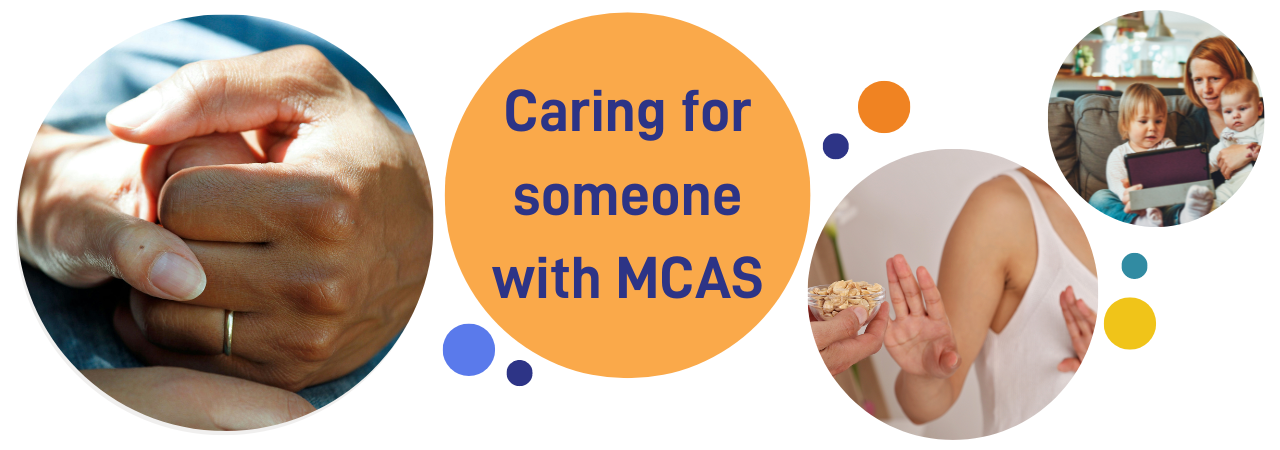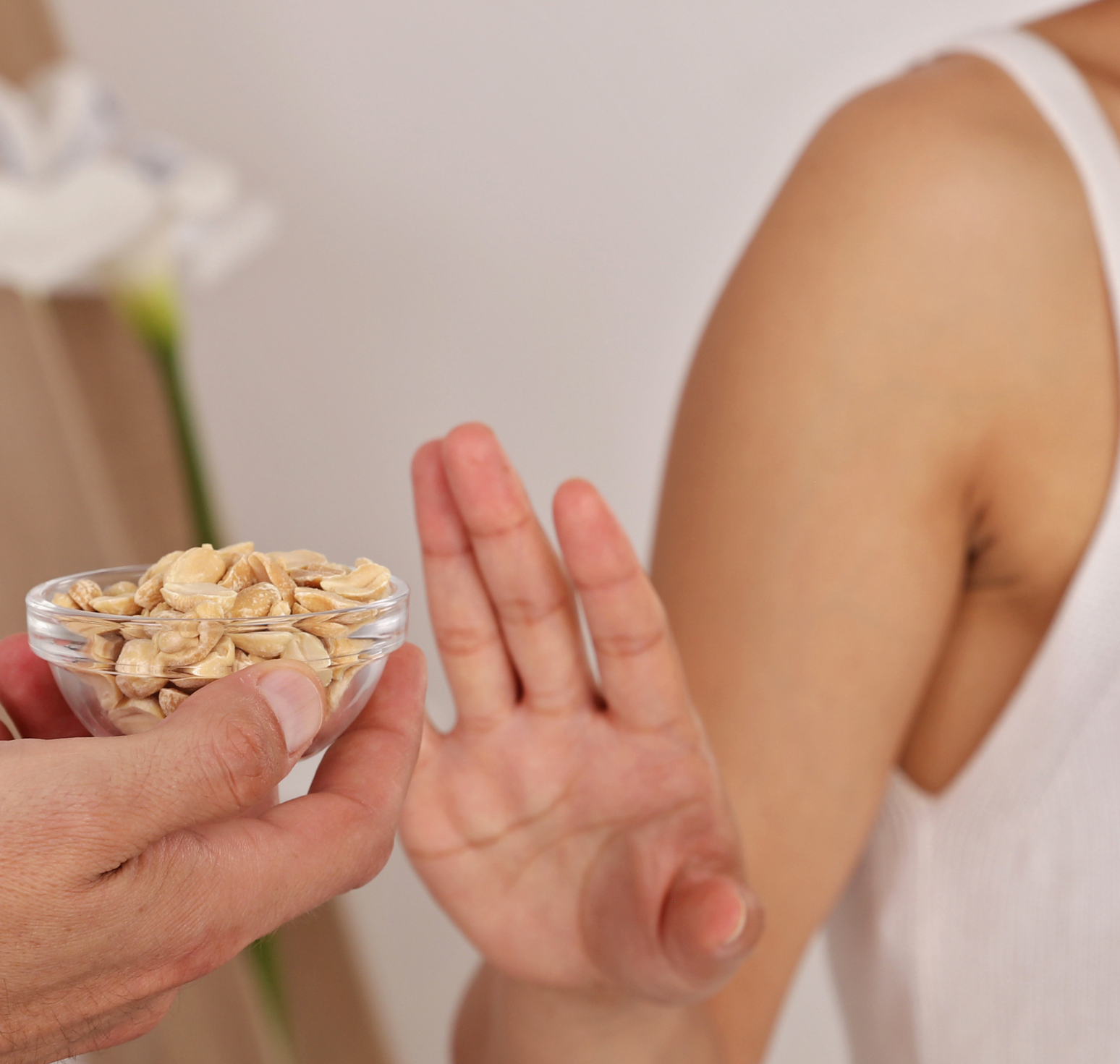

Caregivers
If you're caring for someone with MCAS, you're likely familiar with the complexities and challenges it can present. Living with MCAS can be unpredictable, with symptoms fluctuating in intensity and frequency. It can help to be prepared to adapt your caregiving approach as needed.
As a caregiver, you play a crucial role in supporting your loved one through their journey with MCAS. This page aims to provide you with information, resources, and support to navigate this journey more effectively.

Understanding MCAS
MCAS symptoms can vary widely from person to person and may include skin rashes, gastrointestinal issues, respiratory problems, cardiovascular symptoms, and more.
It's a complex condition that requires a multidisciplinary approach for management.
You may find it useful to read more about MCAS and famaliarise yourself with common triggers and symptoms.

Caring for yourself too
You may be able to support your loved one in a variety of ways, such as providing emotional or physical support, assisting with daily tasks, accompanying your loved one to medical appointments or advocating on their behalf. It is important to prioritise self-care as well, as caregiving can often be physically and emotionally demanding. You can not pour from an empty cup! All of our virtual sessions are not only open to those living with MCAS, but to caregivers too, so why not take advantage of our calming Rest and Unwind or Qigong sessions to help you recharge a little.

Communication and support network
Communicating about your situation can help you both to cope. Encourage your loved one to share their symptoms, concerns, and needs with you. Likewise, communicate your own needs and limitations as a caregiver. Many of our community find it helpful to build a support network of family, friends, and healthcare professionals (where possible) who understand MCAS and can offer assistance when needed. Our online support groups can also be valuable resources for connecting with other caregivers and individuals living with MCAS.

Avoiding triggers
Helping your loved one to identify and avoid triggers that exacerbate their symptoms is a key part of supporting someone who is living with MCAS.
This may involve supporting dietary modifications, environmental adjustments, and stress management techniques. You may find our page on managing your environment useful. Creating a 'safe bubble' at home with as few triggers as possible is a great way to support someone with MCAS.

Physical support
If you are able to, you could offer to help your loved one with physical tasks, such as food shopping, meal preparation or house cleaning. During flares, those living with MCAS can sometimes feel extremely fatigued, so an offer of help may be gratefully received.
Those with MCAS may also appreciate support with medication management, including ordering and collecting prescriptions and organising them into pill-sorters.

You are not alone
Caring for someone with MCAS can be challenging, but you're not alone. There is a whole community of people facing similar journeys and together we can support each other through the tougher times.
Remember, taking care of yourself is essential too. Reach out for help if you need it, and don't hesitate to lean on your support network. For additional resources and support, please feel free to contact us.
Become a friend
Sign up to become a Friend of Mast Cell Action so we can keep you up to date on our progress and on how to get involved in our latest campaigns and initiatives.
Donate
Mast Cell Action relies entirely on the generosity of people like you. Please make a donation now and together we can make a difference to those affected by MCAS.

